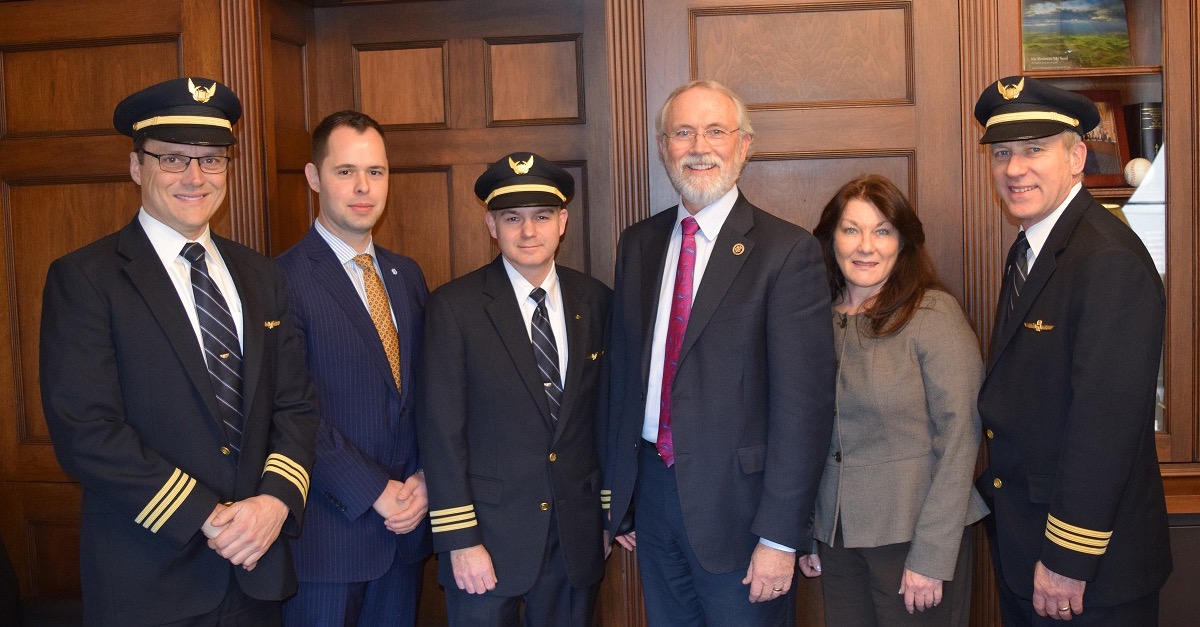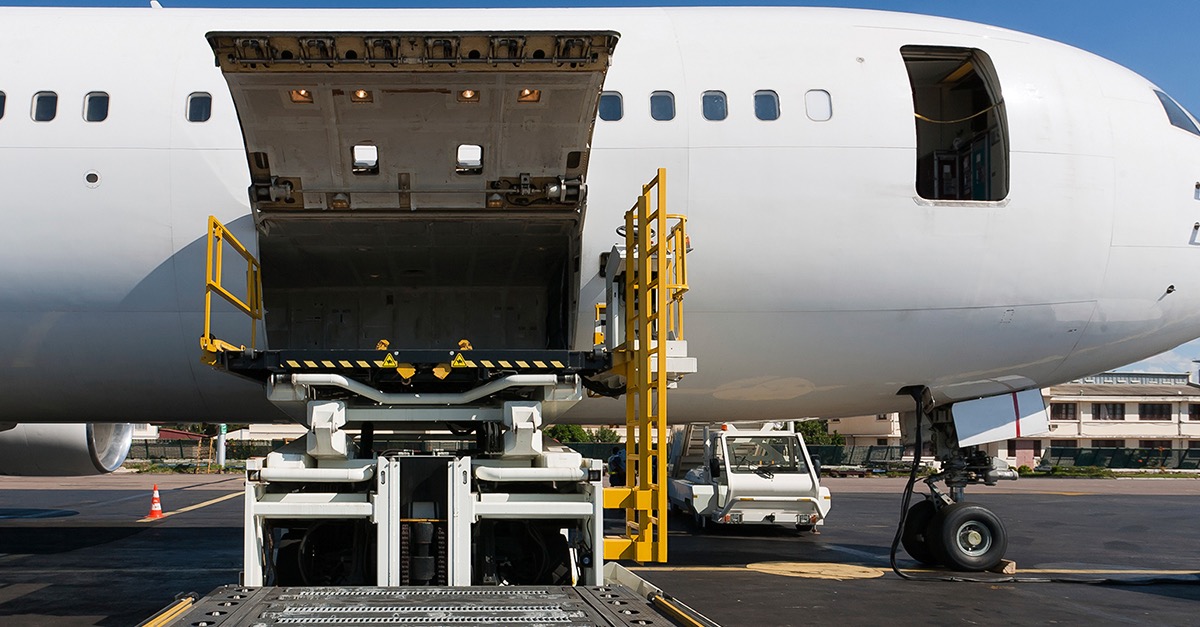Published on
January 21, 2016
By Captain Chuck Dyer, FedEx MEC Chairman
My fellow pilots at FedEx are engaged in a struggle that I believe poses one of the greatest threats to our pilots’ health and professional welfare imaginable. As you may recall, a few years back, UPS Flight 6 caught fire in the skies of Arabia a few minutes after takeoff, and before the crew could safely land the aircraft, both pilots perished and the aircraft was lost. It was discovered that this fire was caused by lithium batteries—to be clear, more than 80,000 lithium batteries. That’s right, more than 80,000 of them.
Published on
January 15, 2016
This week, United Airlines pilots took to Capitol Hill as part of ALPA’s efforts to mandate secondary barriers on passenger aircraft. Secondary barriers are lightweight devices that are easy to deploy and stow, installed between the passenger cabin and the cockpit door, that block access to the flight deck whenever the reinforced door is opened in flight.
After the attacks of 9/11, the U.S. Congress and the Canadian Parliament mandated that airlines replace standard cockpit doors with hardened doors on certain types of airliners. However, practical experience using these doors soon revealed a critical vulnerability—the reinforced door must be periodically opened during flight for pilots’ operational and physiological needs, which means they may be compromised by one or more terrorists who could rush the flight deck. To address this unintended security lapse, a secondary barrier was developed by airlines for use whenever the cockpit door is open during flight.
Government and industry studies have shown that secondary cockpit barriers are an effective, inexpensive way to protect our aircraft during flight when the cockpit door must be opened. The current alternative—a flight attendant acting as a human shield with or without a serving cart—is not an acceptable layer of security.
Published on
January 14, 2016
This week, the Office of the Inspector General for the Department of Transportation (OIG) released a report affirming the importance of pilot training. Throughout our more than eight decade history, ALPA has maintained that a well-trained flightcrew is the single most important safety asset on any flight. We are pleased that this recent report affirms the importance of this issue to the airline industry.
Tags:
Published on
December 30, 2015
Read Capt. Canoll’s opinion piece published today in The Hill where he calls on Congress, as it considers reauthorizing the Federal Aviation Administration, to regulate shipments of lithium batteries because lives depend on it.
Published on
December 21, 2015
By Capt. Tim Canoll, ALPA president
It’s no surprise that, as many of us check the calendar this week for last-minute holiday shipping deadlines, the pilots who fly cargo in the United States and Canada are experiencing their busiest time of the year. With many more of us buying gifts for family and friends online, pilots who fly cargo will transport hundreds of millions of packages across our two countries and around the globe in the coming days.







